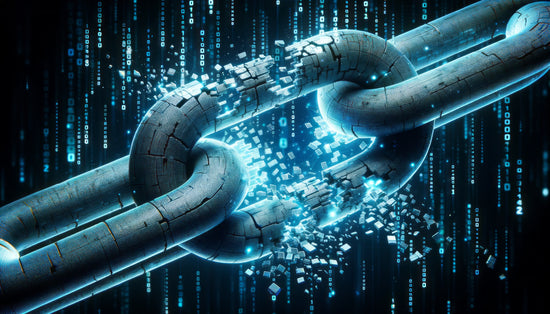The Mysterious Dark Side of AI
The rise of AI has reached an unprecedented speed of advancement. The impact it has already brought to our lives has been compared to other seasons in mankind that have changed history and shaped our society, such as the Industrial Revolution, or the creation of the Internet, so we believe that this topic earns another visit.
AI has already revolutionized various aspects of our lives, promising increased efficiency and convenience. However, beneath its dazzling achievements exists a mysterious dark side that demands our attention. This dark side and its potential impact on medical care and childcare, as well as the privacy paradox and the consequences of infrastructure failures on systems dependent on AI are what we are discussing in this article.
One of the major concerns associated with AI is the phenomenon of "leakage". While it is funny to think about AI as a little bot doing all the mundane and human things we do, leakage refers to instances where AI models reveal unintended, confidential information. While AI systems are trained to process vast amounts of data, including sensitive personal information, there is always the potential for inadvertent disclosure. This can have profound implications in critical domains like medical care and childcare.
In medical care, AI algorithms are being employed to analyze patient data, diagnose diseases, and recommend treatments. But if AI models are not adequately designed to protect patient privacy, personal health records, including sensitive diagnoses and treatments, could be exposed, leading to potential discrimination, exploitation, or misuse of personal information.
AI-driven monitoring systems are also becoming increasingly popular in childcare. These systems employ cameras and sensors to track children's activities, ensuring their safety and well-being. However, if these systems are susceptible to leakage, intimate details about a child's daily life could be exposed to unauthorized individuals, compromising their privacy and potentially endangering their safety.
Despite all of its advancements, AI is not infallible and is certainly prone to making mistakes, and the repercussions can be far-reaching across various domains.
Since we’ve been discussing AI in the medical field, let’s think about this for a moment: when it comes to medical treatment, an AI system's incorrect diagnosis or treatment recommendation could have serious consequences, jeopardizing patient health and safety. Similarly, in childcare, a faulty AI system might overlook a potentially dangerous situation, leading to harm or injury to a child under its supervision. These instances highlight the need for caution, oversight, and continuous evaluation of AI systems to mitigate potential risks.
Reliance on AI systems raises concerns about privacy, especially when faced with prolonged power outages, for example. If a power outage occurs, it can have both unintended consequences and unexpected benefits in terms of privacy.
In scenarios where AI systems are dependent on a continuous power supply, a prolonged outage could disrupt their functioning. This may result in consequences such as prison doors being inadvertently opened or closed, potentially compromising public safety. Extended loss of power could also impact the secure storage and transmission of sensitive data, leading to breaches or unauthorized access.
On the other hand, a power outage may also provide a temporary reprieve from constant monitoring for the private citizen. In other words, in the absence of AI-driven monitoring systems, individuals may experience a respite from intrusive surveillance. Nevertheless, prolonged blackout periods already wreak havoc in our societal infrastructure. The more heavily we rely on AI for essential services, the greater this risk of disruption will be.
In sum, while AI promises immense benefits to our daily lives, it is crucial to acknowledge and stay aware of its mysterious dark side. When we rely heavily on AI, any failure of such AI systems poses significant risks to the privacy and security of all of us, across many fields be it medical care, child care or finances. The potential for AI mistakes highlights the importance of constant evaluation and oversight to ensure safety and reliability. To navigate these waters, a comprehensive understanding of AI's limitations and ethical considerations is necessary, alongside robust safeguards and governance mechanisms to protect individuals and society at large. There’s a delicate balance that needs to be achieved here, and it’s a new dance between humans and machines we all need to learn.






















